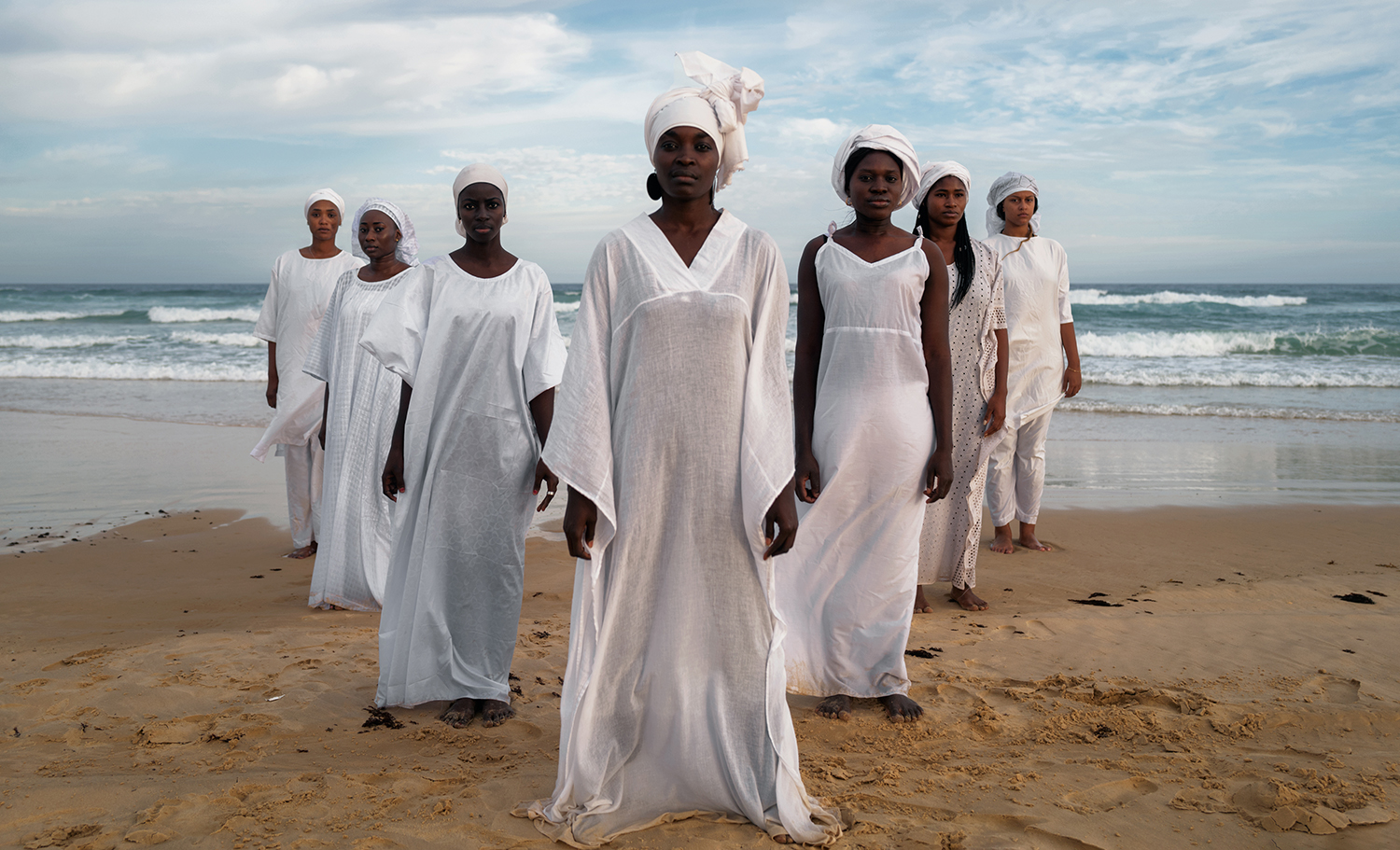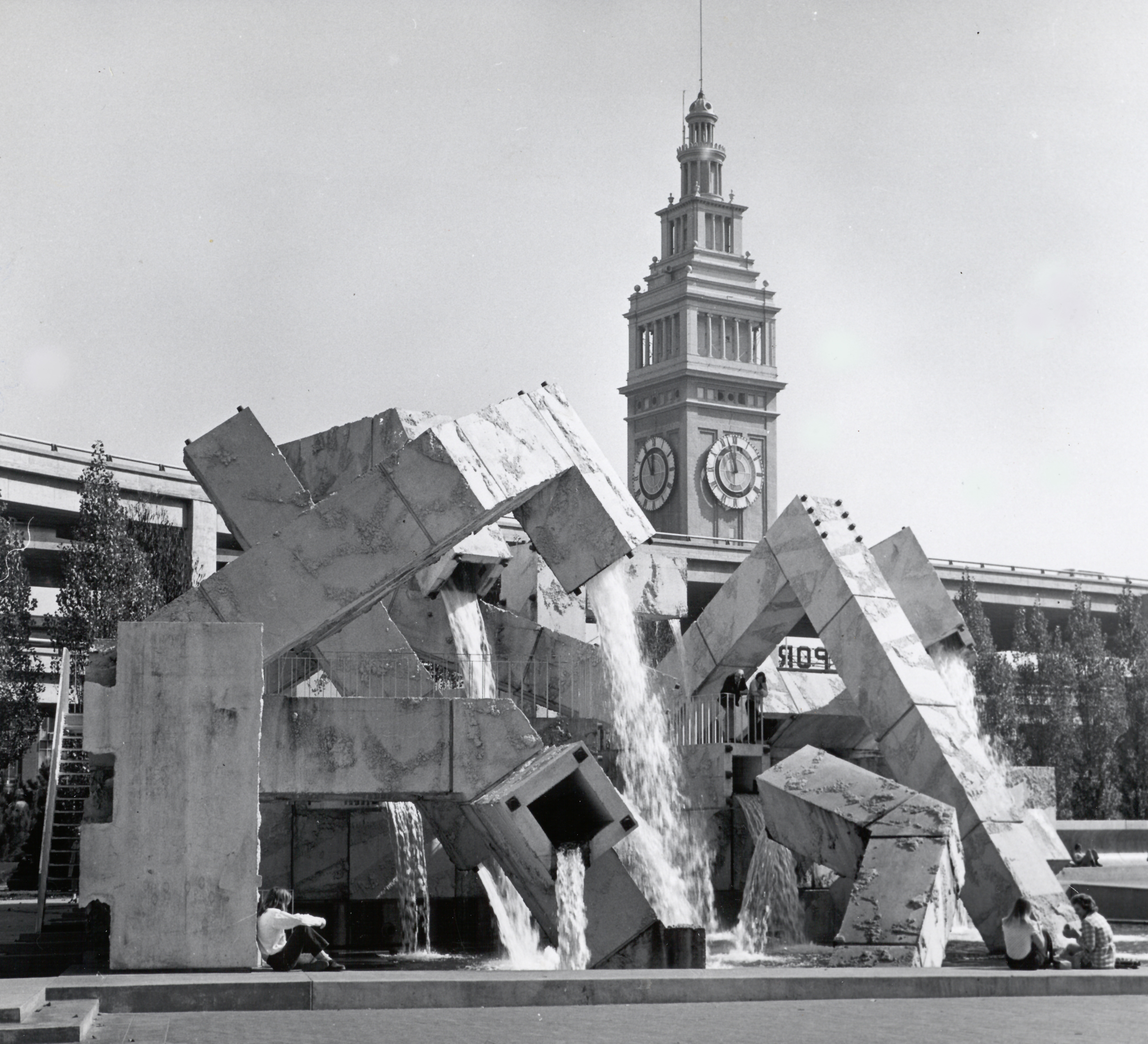
Singing the "Venus Blues" with Oakland Artist Adrian L. Burrell
By Mark Taylor
Last winter, I finally dove into my copy of "The Warmth of Other Suns," Isabel Wilkerson's study of the Great Migration, the decades-long movement of Black Americans out of the Jim Crow south. I knew it would be a well-researched page turner, but I avoided facing the painful truth of anti-Black racism in all its naked and nasty detail, which I knew waited for me inside.
The mundane face of racial injustice is revealed in those everyday details, systems of oppression so obvious one might overlook or try to minimize their effects, not to mention the ramifications echoing across time.

Adrian L. Burrell's grandmother, Threather Lewis, a feature of the artist's archival research project and multi-channel film "The Saints Step in Kongo Time." Image courtesy the artist and Minnesota Street Project Foundation.
Oakland storyteller Adrian L. Burrell explores this condition through the specifics of his family's story. The centerpiece of "Venus Blues," his show at the Minnesota Street Project Foundation's new 20,000 sq. ft. exhibition space, is a multi-channel film titled "The Saints Step in Kongo Time." A phatasmagoria of archival, performance, and documentary footage, the expressionistic video periodically lands on sometimes brutal, sometimes touching snippets of the artist's family history: the relative who was killed when oil was discovered beneath his Louisiana land; the cousin who survived being shot in the face. The film's focus is Burrell's 90-something grandmother, Threather Lewis. "No one knows how old she is. I do know that she was 83 for, like, three years,” one cousin quips. The matriarch migrated from Louisiana to Oakland in 1945, survived two husbands, and gave birth to 16 children (outliving eight) — a tree whose branches have so far borne the fruit of over 330 descendants.

Adrian L Burrell, photographed by Dondre Stuetley.
Produced in collaboration with members of his extended family, Burrell's ongoing art project is an open-ended interrogation of their shared history, gathering stories that he intentionally fragments, samples, and remixes. Tracing his ancestry back to slavery, gaps appear, which Burrell incorporates as important elements of the work. He says, "Just because there are things we can't know doesn't mean that we shouldn't make an attempt to uncover, to unearth. It's not necessarily about coming to a conclusion. It's a collective process of ritual making, an energy that gets gathered and released with my family and my community."
Burrell's film shares intimate details while remaining mysterious. Unnamed family members appear in weathered snapshots. Images of southern swamps are intercut with East Bay sideshow footage. The filmmaker draws a chalk circle around himself and spins inside of it, expressing the frustration of a circumscribed life. Photos of backs bent in labor are projected onto a field of sugar cane, while activist Fannie Lou Hamer states the obvious: "We know [the U.S] flag is drenched with our blood, as we know this country was built on the Black backs of Black people. Across this country they know what they've done to us."
And yet, here we are in 2023, with over a third of the U.S. population lacking the constitution to face facts, retreating into long debunked fictions, and attempting to drag the rest of us into their denial.
Curated by scholar and critic Dr. Tiffany E. Barber, "Venus Blues" arrives as a response, a ritual space for performing, releasing, and soaking up the energy of collective grief through storytelling. The title is inspired by Saidiya Hartman's essay, "Venus in Two Acts," which attempts and informatively fails to imagine the life of an enslaved girl, Venus, who was killed by a slave ship captain and appears briefly in the court transcript of his murder trial. Hartman asks a number of questions about the lives of those written out of history: "How does one revisit the scene of subjection without replicating the grammar of violence? How can a narrative of defeat enable a place for the living or envision an alternative future?" Burrell's exhibition provides a setting for us to live inside these questions.
Digging through family history, he discovered a bill of sale for an ancestor named Venus who was kidnapped in Senegal and sold to slavers in Louisiana. Burrell visited the House of Slaves, home to the "Door of No Return," off the coast of Senegal and is attempting to capture the stain of that place through the worn colors and curves of the architecture he found there. "There's something that happened to me when I was on a boat going to this island. Walking through this corridor to an infinity of an ocean and staring out. I knew from my research that I have family who went through this doorway. And I'm the first in my line to come back,” he says.
Burrell reclaims the architecture of slavery, wheat-pasting the structure with images of his own family's "Venuses," a matriarchal line of archival photos that goes back to his great-great grandmother who was born into slavery. "All the women seen and unseen, known and unknown. I am here because of them." Burrell wonders, "How can I be a part of them singing their song?"
There is a guerrilla aspect to the work. Likening his process to "living off the land," Burrell often utilizes the closest tool to capture the spirit when it moves. The result is a mix that juxtaposes high gloss with rough hewn, layers in an archive covered in loving fingerprints. Shafts of "God light" project holograms into metallic water troughs. Letters to the future are written and displayed.

Adrian L. Burrell, “Modernity Blues”, 2020. Image courtesy the artist and Minnesota Street Project Foundation.
Burrell says that after he was assaulted by a corrupt Vallejo cop in 2019, "you basically start to feel under constant attack in this country that you are supposed to be from. I began to wonder: Where is home? It's not Senegal. It's not Louisiana. Doesn't always feel like Oakland.... Long story short. When my grandmother passed in 2020, I realized the closest I would ever get to home was the sound of her voice. And not just because I love her, but because one of the things that survived the Middle Passage was the sound. There are these rhythmic patterns, these speech patterns, there's music. The beat survived and we've been remixing it for a long time now, but it's still there. And this woman who was raised by people who were born into slavery, who I spoke to on a daily basis, her voice held that beat. It kept that time. Whenever I hear her, I am close to home."
In so many ways, cultural to economic to environmental, today's most pressing issue, underlying all others, is the nature of the place we call home.
→ "Venus Blues" runs October 7 – November 18 at 1201 Minnesota Street.
Main Image: Adrian L. Burrell, "Cyclical Symphony", 2022. Image courtesy the artist and Minnesota Street Project Foundation.



